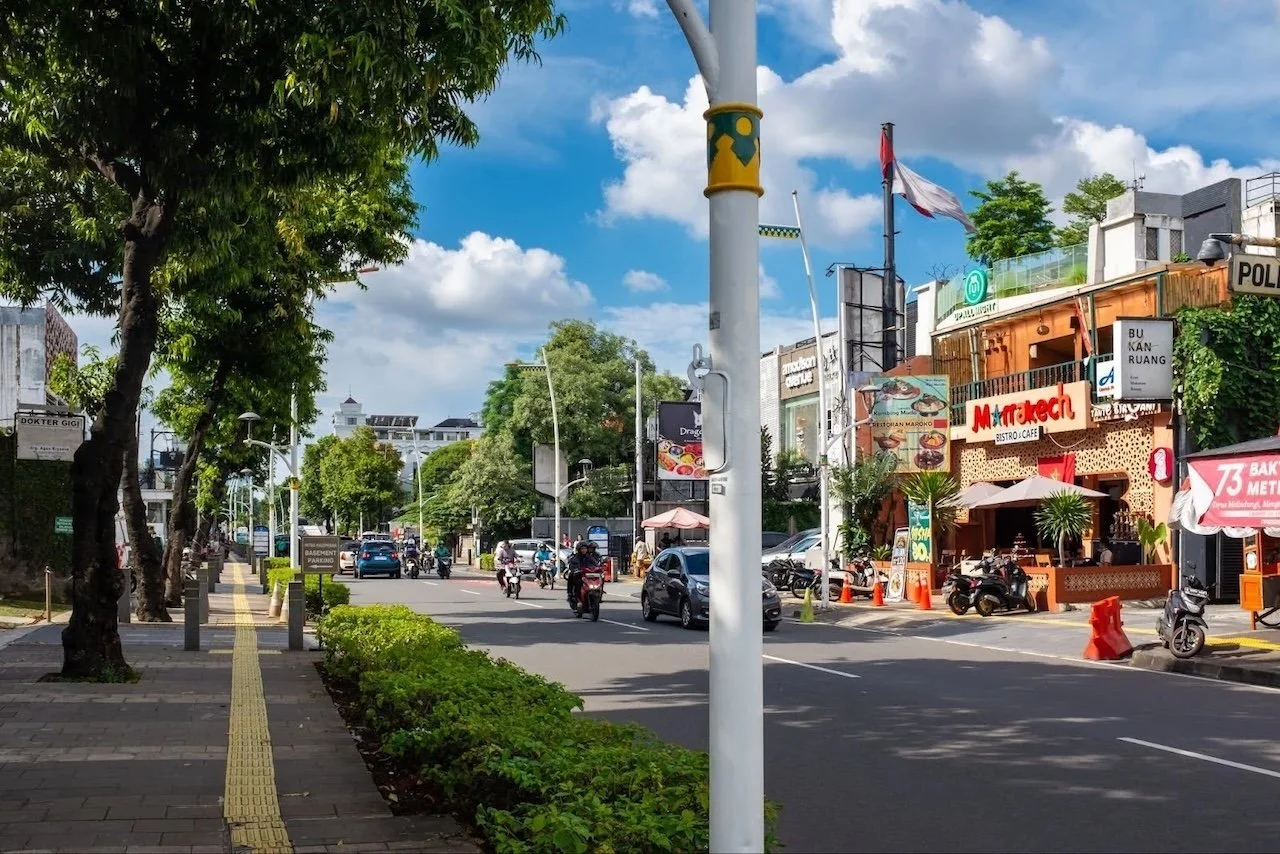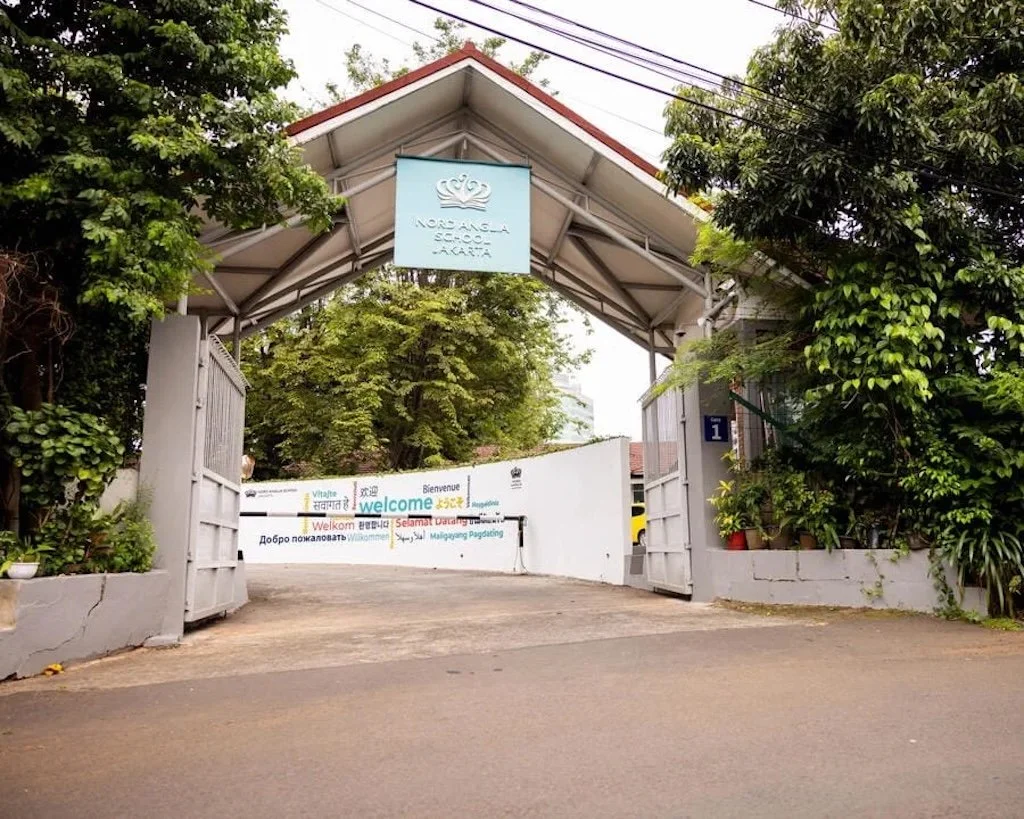The Ultimate Guide to Jakarta’s Neighbourhoods and International Schools: 2025
A Practical 2025 Guide to Living Well and Learning in Jakarta
When choosing where to live in Jakarta, two of the most important considerations are school proximity and traffic management, which are closely linked. The city’s congestion is notorious—commutes that appear short on a map can take well over an hour during peak times, especially in areas without efficient alternative routes. For families with school-age children, living close to their chosen international school can make a significant difference to daily quality of life. Many expatriate families prioritise neighbourhoods within a 15–30 minute drive of schools or near major transport corridors like the MRT. Alongside this, housing options and budget vary widely by area. South Jakarta offers the largest range of family housing—from luxury gated communities in Pondok Indah to modern apartments in Kemang—but prices rise steeply with convenience and amenities. Balancing affordability with accessibility to schools, workplaces, and main roads is key to finding a home that supports both comfort and practicality in Jakarta’s dynamic urban environment.
“A 10-kilometre commute can easily take an hour or more during rush hour, so families are strongly advised to select a neighbourhood that allows their children a manageable daily journey.
South Jakarta is home to Pondok Indah, a favourite destination for most expatriate families
Pondok Indah
Often referred to as the “Beverly Hills of Jakarta,” Pondok Indah is one of the city’s most established and sought-after residential areas for expatriate families. Wide, tree-lined streets, gated compounds, and proximity to top international schools—including The Independent School of Jakarta (ISJ) and Jakarta Intercultural School (JIS)—make it especially popular. The area offers high-quality amenities, from Pondok Indah Mall 1–3 and the Metropolitan Medical Centre to golf courses and sports clubs. While traffic can be heavy during school hours, its convenience, safety, and community atmosphere continue to make it a leading choice for expat families.
Pondok Indah Golf Course
Kemang
Kemang is Jakarta’s creative and social hub, known for its cosmopolitan mix of cafés, boutiques, art galleries, and international restaurants. The neighbourhood has a distinctive charm that appeals to families seeking a lively, close-knit community with a global feel. Housing ranges from renovated villas to modern apartments, and the area’s social calendar is often busy with community events. However, parts of Kemang are prone to flooding during the rainy season, particularly in low-lying areas—so it’s wise to choose homes on higher ground or streets with good drainage. Despite this, its character and central location make Kemang a long-standing favourite among expats.
Kemang provides a lively setting
Cilandak / Lebak Bulus
Located slightly farther south, Cilandak and Lebak Bulus attract families looking for a quieter, more affordable lifestyle without sacrificing accessibility. The area has expanded quickly, offering newer gated communities, modern townhouses, and improved transport links via the MRT. It’s well-connected to international schools such as SIS and HighScope Indonesia, and amenities like Cilandak Town Square and One Belpark Mall add convenience. For families who value space, security, and a relaxed environment, Cilandak and Lebak Bulus offer a practical balance between affordability and comfort in South Jakarta.
Menteng
Menteng is one of Jakarta’s most prestigious and historic neighbourhoods, known for its tree-lined streets, colonial-era architecture, and proximity to embassies and government offices. Located in Central Jakarta, it appeals to families and professionals seeking elegant homes in a well-established setting close to the city’s commercial and administrative hubs. Properties here are typically large, older houses or luxury apartments, often with significant green space—a rarity in Jakarta. While Menteng offers excellent access to central amenities, fine dining, and cultural landmarks, it has limited international schooling options, meaning many families commute to South Jakarta for education. Traffic can be dense during rush hours, but for those prioritising heritage, prestige, and convenience, Menteng remains one of Jakarta’s most desirable addresses.
Menteng in central Jakarta. Great city location but lot’s of traffic.
West and North Jakarta
West and North Jakarta tend to be less popular with expat and wealthier Indonesian families due to the distance to friends, restaurants and facilities in the traditionally more established areas. In Kebon Jeruk (West Jakarta), some gated communities and apartment complexes offer homes at more accessible prices, alongside shopping centres such as Puri Indah Mall and Lippo Mall Puri. The area also provides access to toll roads and schools like IPEKA, though residents should expect some ongoing construction as development continues.
Meanwhile, Pantai Indah Kapuk (PIK) in North Jakarta is a new urban expansion. A waterfront community combining residential and lifestyle amenities, schools such as Tzu Chi, and an array of cafés, malls, and recreation options, PIK appeals to families seeking a self-contained, resort-style environment. However, its distance from central and southern districts can make commutes longer, so it suits those whose schools or workplaces are located nearby or those working from home.
International School Overview
Jakarta is home to a wide range of international schools offering British, American, IB, and national curricula from across the world. Choosing the right school is often the single most important decision for expatriate families — and, in Jakarta, it can also determine where you live. Because of the city’s challenging traffic, proximity to school is critical. A 10-kilometre commute can easily take an hour or more during rush hour, so families are strongly advised to select a neighbourhood that allows their children a manageable daily journey.
The Independent School of Jakarta: “A modern, well-maintained campus”
In South Jakarta, the majority of the city’s leading international schools are concentrated, particularly around Pondok Indah, Cilandak, and Kemang. Two of the most respected are located in Pondok Indah: The Independent School of Jakarta (ISJ) and Jakarta Intercultural School (JIS). ISJ offers a high-quality British education, blending academic rigour with a strong pastoral focus and a warm, inclusive community. Its smaller scale allows for individual attention, while the school’s teaching and leadership draw from respected UK independent schools. Nearby, JIS delivers an American-style education with the International Baccalaureate (IB) Diploma, and is renowned for its extensive facilities, co-curricular opportunities, and commitment to athletics. Both schools are highly regarded among expatriate families for their academic standards and sense of community.
“In Jakarta, more than in most cities, the best school for your family is often the one that is close enough to make every morning run smoothly.
Elsewhere, British School Jakarta (BSJ) is based in Tangerang, approximately one to two hours from most of the preferred residential neighbourhoods in South Jakarta. Established over 40 years ago, BSJ has a spacious campus with extensive sporting facilities. Despite its name, the school has moved away from a British curriculum to adopt a more international framework. The long commute makes it a challenging option for families who wish to live near Jakarta’s main expatriate hubs, though it remains a well regarded choice for those based closer to Tangerang or the western suburbs.
Another long-established school is Nord Anglia School Jakarta (NAS Jakarta), originally founded as the Dutch International School. It was later acquired by private equity firm, Nord Anglia Education. NAS is a good option for those looking for something more affordable. However, families should be aware that the campus is older, and the area can be prone to flooding during heavy rain — so it is wise to visit the school in person and assess both facilities and location carefully.
The Australian Independent School (AIS) Jakarta, founded in 1996 and located in Kemang, offers the Australian National Curriculum in a friendly, inclusive setting. With a diverse international teaching staff, AIS appeals to families seeking a less formal, community-oriented environment, particularly those planning for further study in Australia. It provides a balanced, student-focused education with a distinctly Australian character.
Across all Jakarta international schools, there are a few practical differences compared with other cities in the region. Many schools require tuition fees to be paid annually in advance, and admission assessments are common, particularly for mid-year entries. Waitlists can develop quickly in popular grades, so early application is recommended. When comparing options, families should consider not just the curriculum and academic results, but also commute times, community culture, and access to extracurricular programmes.
”Many schools require tuition fees to be paid annually in advance
Practical Tips for New Arrivals
Housing Search
Start your housing search at least three to four months before your move. Visit potential homes at different times of day to check traffic and noise levels. Flood history and access to major roads or the MRT are important factors in Jakarta. Leases are typically for two years and often require payment for several months in advance. Negotiation is expected, so don’t hesitate to request repairs or upgrades before signing.
Documents Required
Landlords and agents usually ask for copies of your passport, KITAS (work permit), proof of employment or income, and, if applicable, your marriage certificate. Having previous rental references can also help speed up the process. Some properties, particularly those managed by expatriate landlords, may ask for proof of international bank transfers or company support letters.
Setting Up Home
Popular internet providers include Biznet, Indihome, and First Media. Most expatriate families hire domestic staff—such as a housekeeper, nanny, or driver—through word of mouth or reputable local agencies. Reliable water dispensers and air purifiers are also worth investing in to make life in Jakarta more comfortable.
The Apps that Work Well in Jakarta
Most expats and locals in Jakarta rely on a few key apps to make daily life easier. Gojek and Grab are the go-to choices for transport, food delivery, and even paying bills or sending packages. Waze helps drivers and commuters navigate the city’s unpredictable traffic, while Zomato and Google Maps are popular for discovering restaurants and cafés. During the rainy season, the BMKG app is essential for weather forecasts and flood alerts. With these apps on your phone, you’ll quickly adapt to the rhythm of Jakarta life.
Useful Contacts for Expats
Community Groups
British Women’s Association (BWA Jakarta)
IG: @bwajakarta | Web: bwajakarta.org | Email: bwa@bwajakarta.org
Women’s International Club (WIC Jakarta)
IG: @wicjakarta | Web: wic-jakarta.or.id
Australia & New Zealand Association (ANZA Jakarta) – IG: @anzajkt | Web: anzajakarta.com | Email: info@anzajakarta.com
International Hospitals
Rumah Sakit Pondok Indah (RSPI)
Jl. Metro Duta Kav. UE, Pondok Indah | +62 21 765 7525 | rspi.co.id
Siloam Hospitals TB Simatupang
Jl. TB Simatupang Kav. 18 | +62 21 2953 2900 | siloamhospitals.com
RS Premier Bintaro
Jl. MH Thamrin No.1, Bintaro | +62 21 745 4111 | ramsaysimedarby.co.id
Police & Emergency Services
Police: 110
Ambulance: 119
Fire: 113
Search & Rescue (Basarnas): 115
Local Police Station (Polsek Kebayoran Lama) – Jl. Ciputat Raya No. 8, Pondok Pinang | +62 21 765 1234
24-Hour Pharmacies & Clinics
International SOS Medika Clinic
Jl. Puri Sakti No.10, Cipete | +62 21 750 5980 / 750 6001 | internationalsos.com
Guardian Pharmacy
Pondok Indah Mall 2 | +62 21 769 3766 | guardian.co.id
Century Healthcare
Pondok Indah Mall 3 | +62 21 7592 5678 | century-healthcare.com
The Independent School of Jakarta (ISJ) is Jakarta's leading British school for children aged 2–13, delivering the gold-standard English National Curriculum. Driven by our hand-picked teachers from top UK independent schools, our pupils consistently achieve remarkably high academic scores.
Choosing the right neighbourhood often starts with the right school. Explore how ISJ stands out among Jakarta’s leading international schools at www.isj.id.






